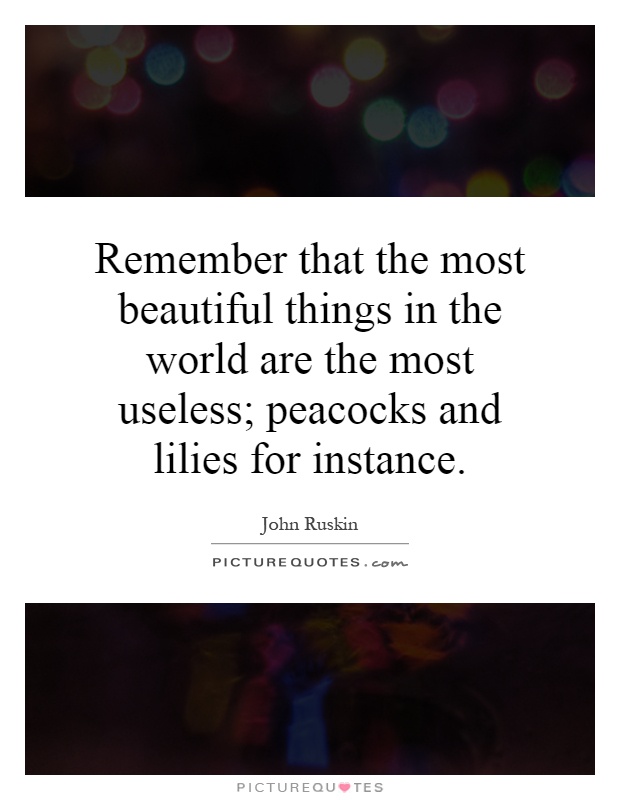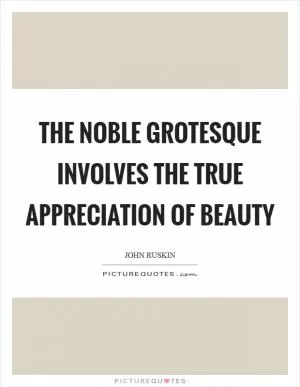Remember that the most beautiful things in the world are the most useless; peacocks and lilies for instance

Remember that the most beautiful things in the world are the most useless; peacocks and lilies for instance
John Ruskin, a prominent English art critic and social thinker of the 19th century, was known for his profound observations on beauty and its significance in the world. One of his famous quotes, "Remember that the most beautiful things in the world are the most useless; peacocks and lilies for instance," encapsulates his belief that beauty holds a unique and intrinsic value that goes beyond practicality or utility.Ruskin's statement challenges the conventional notion that beauty must serve a purpose or have a practical function to be considered valuable. Instead, he argues that the most exquisite and captivating things in the world, such as peacocks and lilies, are valuable simply because of their beauty and aesthetic appeal. These objects exist purely for the sake of being beautiful, without any practical purpose or utility, yet they hold a special place in our hearts and minds.
Peacocks, with their vibrant plumage and graceful demeanor, have long been admired for their beauty and elegance. Their extravagant display of feathers serves no practical purpose in terms of survival or reproduction, yet it is this very display that makes them so captivating and mesmerizing to behold. Similarly, lilies, with their delicate petals and intoxicating fragrance, are prized for their beauty and symbolism of purity and innocence. They may not serve any practical function in the natural world, but their beauty has inspired artists, poets, and lovers for centuries.
Ruskin's statement also speaks to the idea that beauty has the power to uplift and inspire us in ways that practicality or utility cannot. The sight of a peacock spreading its feathers or a field of lilies in full bloom can evoke a sense of wonder, awe, and joy that transcends the mundane concerns of everyday life. In a world that often values efficiency, productivity, and material wealth above all else, Ruskin reminds us of the importance of appreciating and cherishing the beauty that surrounds us, even if it serves no practical purpose.












 Friendship Quotes
Friendship Quotes Love Quotes
Love Quotes Life Quotes
Life Quotes Funny Quotes
Funny Quotes Motivational Quotes
Motivational Quotes Inspirational Quotes
Inspirational Quotes